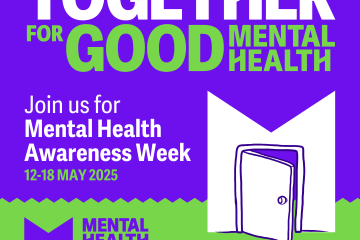
One of the most common topics we are asked about in our work with schools usually revolves around low-level concerns.
In our experience, Nigerian schools are beginning to recognise that the small things can sometimes be early warning signs that boundaries are being blurred. If left unaddressed, these small issues can contribute to a culture where more serious harm is possible.
Below, we have answered the ten most common questions we receive about low-level concerns, drawing from guidance by the NSPCC, The Safeguarding Alliance, Keeping Children Safe in Education (KCSIE) 2025, and our own Safeglia case experience.
It is important to note that this post is for educational purposes only and does not constitute legal advice. Nigerian schools should adapt these recommendations to fit their cultural, legal, and policy contexts.
1. What is a low-level concern, and how is it different from an allegation?
A low-level concern is any concern, doubt, or small worry about an adult’s behaviour towards children that does not meet the harm threshold but still breaches, or could breach, the school’s Code of Conduct.
This can include conduct outside work if it raises doubts about their suitability to work with children. Even a “nagging doubt” counts and should be reported.
An allegation meets the harm threshold if it involves:
- Actual or potential harm to a child
- Possible criminal offence against or related to a child
- Behaviour indicating the person may pose a risk of harm
- Actions suggesting the person is not suitable to work with children
2. Why should Nigerian schools take low-level concerns seriously?
Nigerian schools take low-level concerns seriously because boundary violations and grooming often begin subtly. Reviews of abuse cases show colleagues often had small concerns but did not report them, thus missing opportunities to intervene early.
Addressing low-level concerns helps schools:
- Spot problematic behaviour before it escalates
- Promote a transparent, safe culture
- Protect both children and staff from harm or false allegations
3. Do we need a separate low-level concerns policy?
Schools do not necessarily need a separate low-level concerns policy. It can be part of your safeguarding policy or staff code of conduct. However, the policy should:
- Define what a low-level concern is
- Give examples relevant to your school
- Explain why reporting matters
- Outline the reporting process
- State how concerns will be managed, recorded, and reviewed
- Clarify how long records will be kept
- Be accessible to all adults in the school community.
Transparency in creating the policy builds staff confidence and reduces resistance.
4. How do we report a low-level concern?
Concerns should usually be reported to the Designated Safeguarding Lead (DSL), Headteacher, or nominated safeguarding person. If the concern involves one of these people, report to their deputy or another senior manager.
Some schools allow anonymous reporting or use a “safeguarding lead” to make it easier for staff to raise concerns.
5. What are examples of low-level concerns in a Nigerian school context?
Examples of low-level concerns in a Nigerian school context include but are not limited to:
- Calling students personal nicknames that make them uncomfortable
- Messaging students on WhatsApp or non-approved or unsupervised channels
- Following or interacting with students on personal social media accounts
- Inviting small groups of students into staff-only areas without another adult present
- Regularly ignoring supervision or boundary rules
6. How should low-level concerns be recorded and stored?
Every low-level concern should be documented in writing. This record should clearly describe what happened, the context in which it occurred, and the action taken in response. Wherever possible, the name of the person raising the concern should be included, unless they have requested to remain anonymous. These records must be stored securely and treated as confidential, in line with data protection requirements. In Nigeria, while the legal framework differs from the UK’s GDPR, the principle remains the same: access to safeguarding records should be strictly limited to authorised personnel.
It is good practice to retain these records for at least as long as the staff member is employed at the school. Periodic reviews of stored concerns can reveal patterns of behaviour that may otherwise be missed.
7. Who reviews a low-level concern, and what happens next?
In most schools, the responsibility for reviewing low-level concerns sits with the Designated Safeguarding Lead, the nominated safeguarding officer, or the headteacher.
The reviewer’s role is to examine the concern in detail, which often involves speaking to the person who raised it, the adult whose behaviour prompted it, and any witnesses. This step should only be skipped if statutory agencies, such as child protection services or the police, advise against it.
When reviewing a concern, the key questions are: How serious is this incident? Is there a pattern when viewed alongside other concerns? Based on these answers, the reviewer decides on the next steps, which might range from informal coaching or additional training to formal disciplinary action. Whatever the outcome, the decision and the reasoning behind it should be recorded in writing.
8. What are the benefits of low-level concern reporting?
Creating a culture where low-level concerns are reported brings multiple benefits. First and foremost, it allows for early detection of potentially risky behaviour, enabling swift intervention before a child is harmed. It also builds an atmosphere of openness and trust, where staff feel confident in raising even small matters.
For staff, this process can also act as a safeguard against false or malicious allegations. When behaviour is documented and addressed promptly, it leaves less room for misunderstandings or misinterpretations.
Finally, regular analysis of low-level concern records can improve training programmes and inform policy reviews, ensuring that safeguarding practices remain relevant and effective.
9. How can schools help staff overcome barriers to reporting?
Even the best reporting system will fail if staff feel reluctant to use it. Many barriers to reporting are rooted in school culture.
Leadership has an important role to play in breaking down these barriers. When school leaders model openness and transparency, they send a clear message that safeguarding is everyone’s responsibility. Schools should opt for anonymous or discreet reporting, as these can also make a significant difference, especially for support staff or new employees who may feel less confident.
Ongoing training should include real-world examples that show how small actions can have safeguarding implications. This helps staff see that their concerns are valid, even if the behaviour does not appear harmful at first glance.
10. How often should we review our low-level concerns process?
The low-level concerns process should not be a “set and forget” policy. At a minimum, it should be reviewed annually to ensure it is still fit for purpose.
However, there are situations that should trigger an earlier review. These include spotting patterns in recorded concerns, receiving feedback from staff that the process is unclear, or responding to updates in safeguarding laws or best practice guidance.
A review should be collaborative, involving senior leadership, safeguarding teams, and representatives from both teaching and non-teaching staff. This inclusive approach helps to ensure that the process reflects the realities of the school environment and is understood by everyone who might need to use it.
Low-level concern reporting should not be focused on catching colleagues out or creating a culture of suspicion. It should however be focused on ensuring small issues are recognised for what they are, and addressed before they can grow into serious problems.
This requires visible leadership commitment, clear processes, consistent training, and an openness that empowers every staff member to speak up.
Want to know more about safeguarding?
Join our blog community to interact with other safeguarding and child protection stakeholder. Also, visit our events page to see upcoming webinars and events.



4 Comments
Femison · August 17, 2025 at 10:40 am
I attended your session on Low-level concerns, and I must say that I never even knew what the term meant. Now, I can’t wait for resumption to teach it to my school.
Safeglia · August 19, 2025 at 10:37 am
Thank you for attending. Be sure to share our details with your school.
Josephine · August 17, 2025 at 10:41 am
Do you go to schools for training or is it just virtual?
Safeglia · August 19, 2025 at 10:36 am
We offer both physical and virtual trainings. Kindly reach out to us via email.